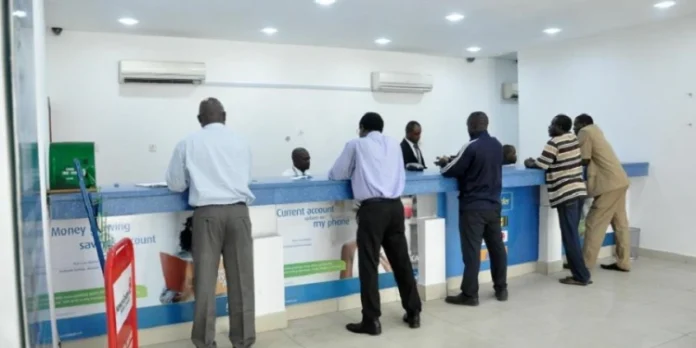The Nigerian banking industry attracted $1.47 billion as capital inflows in the first half of 2022, an increase of 109.8% compared to $698.2 million received in the second half of last year and 46.5% higher than the $1 billion inflows recorded in the corresponding period of 2021.
This is according to data from the Central Bank of Nigeria (CBN). The banking sector recorded the highest foreign inflow in the period under review compared to other sectors in the Nigerian economy, accounting for 47.1% of the inflows into the country.
The manufacturing and financing sectors followed with $457.7 million and $396.7 million respectively.
Meanwhile, a total of $3.11 billion in capital was imported into the Nigerian economy as foreign inflows between January and June 2022, most of which were in form of foreign portfolio investments.
Nigeria’s Banking Sector Leads, Attracts $1.47 Billion Foreign Inflows In Six Months
In contrast to the first half of last year, foreign inflows grew by 11.8%, however, when compared to the second half of 2021, it declined by 20.7%.
Capital inflows into the country recorded a significant decline in the second half of 2020, following the covid-19 pandemic, which triggered a downturn in the global economy, with investors wary of moving their monies to the African giant.
However, since the second half of 2021 inflows have begun to pick up, albeit still very low compared to pre-pandemic levels.
The decline in the number of foreign inflows has caused a huge FX supply shortage in the economy, piling more pressure on the exchange rate as demand for FX has outpaced supply leading to a depreciation in the local currency in the official and parallel markets.
Consequently, the inability to grow export earnings from oil export and the non-remittance of proceeds by the NNPC to the apex bank has caused the foreign reserve to fall further from the $40 billion threshold, currently standing at $38.9 billion.
Highlight of Nigeria’s foreign inflow
Most of the inflows into the country came in as foreign portfolio investments (FPI) at $1.71 billion in H1 2022, accounting for 55.2% of the total inflows recorded in the review period.
A closer look at the data shows that 33.4% of the total fund was invested in money market instruments at $1.04 billion, which could include mutual funds, TBills, commercial papers amongst others.
Others, which include loans, currency deposits, trade credits, and other claims accounted for 35.1% of the total inflows, at $1.09 billion. This is however lower than the $1.59 billion recorded in H2 2021.
Meanwhile, foreign direct investments (FDI) which involve the purchase of interest in a company by a foreign investor accounted for only 9.7% of the total inflows into Nigeria, despite having a strategic impact on the growth of the economy. Also, FDI declined from $466.04 million recorded in H2 2021 to $302.1 million in the review period.

